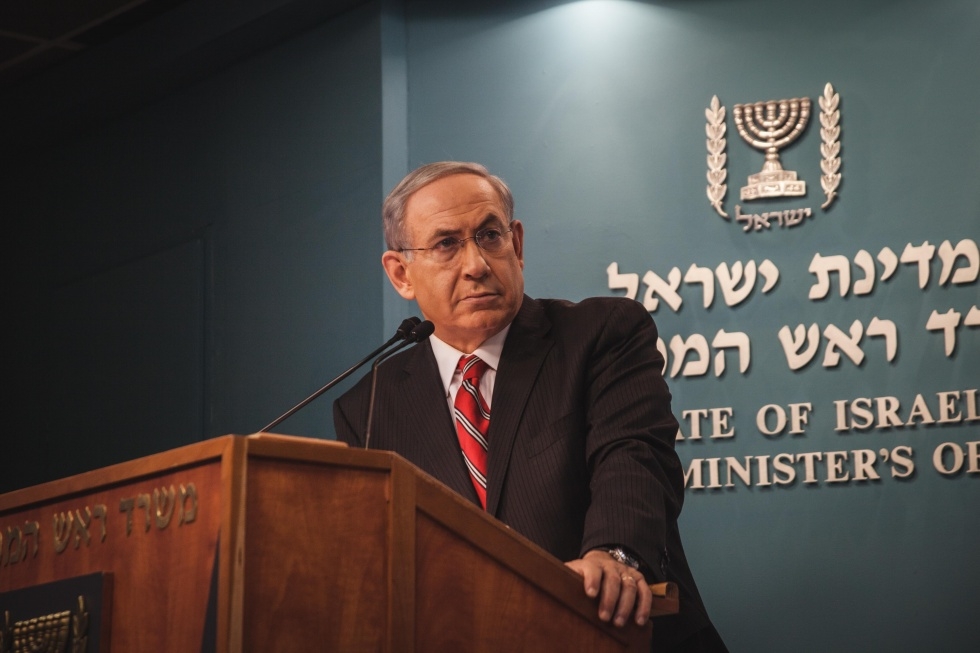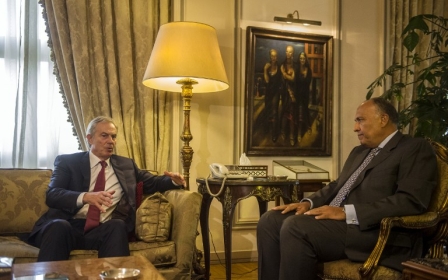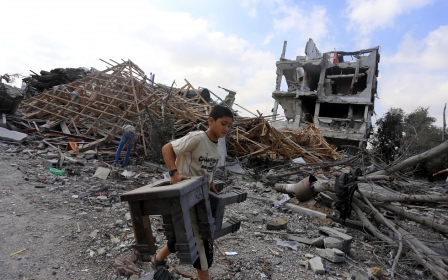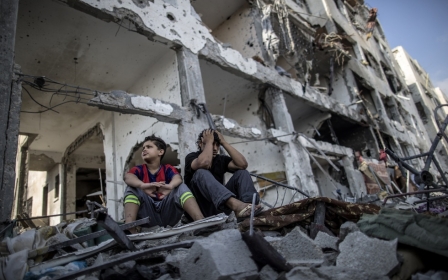Israel says 'ready to extend Gaza truce'

Israel indicated Wednesday it was prepared to extend a 72-hour ceasefire with Hamas unconditionally in the Gaza Strip as Egyptian mediators accelerated efforts to broker a longer-term truce.
Guns fell silent in the tiny Palestinian enclave on Tuesday morning, allowing millions of people on both sides to breathe a sigh of relief after the deaths of 1,875 Palestinians (mainly civilians) and 67 on the Israeli side (mainly soldiers).
With the truce due to expire at 0500 GMT on Friday morning, Egyptian mediators shuttled between Israeli and Palestinian delegations in Cairo, conveying conflicting demands for a long-term calm.
"Israel has no problem extending the ceasefire unconditionally," an Israeli official told AFP on condition of anonymity. There was no immediate reaction from Hamas.
A spokeswoman for the Israeli army confirmed earlier that 27,000 reservists called up for the conflict had been sent home, leaving a force of 55,000 still on active duty, in another sign of growing hopes for long-term quiet.
Israel says actions 'proportionate'
Meanwhile, Israeli Prime Minister Benjamin Netanyahu launched a vigorous defence of the conflict in the face of international criticism over heavy Palestinian civilian casualties.
"I think it was justified. I think it was proportionate and that doesn't in any way take away the deep regret we have for the loss of a single civilian casualty," Netanyahu said in his first public remarks since the ceasefire came into effect.
Israel had faced growing international, including US criticism, over the heavy number of Palestinian civilian casualties. Its loss of 64 soldiers is its most severe since the 2006 war against Hezbollah.
The Palestinians have insisted Israel end its eight-year blockade of Gaza and free scores of Hamas prisoners.
Israel has refused to deal with a Palestinian unity government that emerged after Hamas signed a deal with Palestinian president Mahmud Abbas in April following years of bitter rivalry.
But Netanyahu said Israel was cooperating with the Abbas-led Palestinian Authority.
"We are cooperating with them and we are prepared to see a role for them," he said.
"It is important in the reconstruction of Gaza, assuring the humanitarian aid and also the security questions that arise that we have these discussions and cooperation," the premier added.
"In fact the ceasefire was coordinated among other things with them."
In a BBC interview, US Secretary of State John Kerry said there would have to be compromise on both sides in order to obtain a permanent ceasefire.
UN pledges to rebuild Gaza for 'last time'
Meanwhile, UN chief Ban Ki-moon warned Wednesday that the United Nations is ready to help rebuild Gaza but for the last time.
After three wars in Gaza in six years, the UN secretary general warned that the world's patience with both the Israelis and the Palestinians was being tested.
"Do we have to continue like this -- build, destroy, and build and destroy?" Ban asked.
"We will build again but this must be the last time -- to rebuild. This must stop now."
He opened a special meeting of the UN General Assembly with an appeal for a lasting peace.
"The senseless cycle of suffering in Gaza and the West Bank, as well as in Israel, must end," he said.
Schools, hospitals and homes have been destroyed in Gaza, with UN Middle East envoy Robert Serry saying the carnage was worse than during the last conflict in 2008-2009.
"The nightmare of the last four weeks has been a terrible reminder that only a negotiated political settlement can bring security and peace to Israelis and Palestinians alike," said Ban.
Envoys at odds
The UN General Assembly was convened at the request of Arab countries, who have criticized the Security Council for failing to adopt a strongly-worded resolution to press Israel and Hamas to stop fighting.
Jordan has circulated a draft resolution in the Security Council calling for a ceasefire, a lifting of the Israeli blockade of Gaza and an investigation of attacks on UN-run schools, used as shelters by civilians.
But the document has yet to come up for a vote.
The 15-member Council adopted a statement on July 27 calling for a truce and expressing support for Egypt's mediation efforts after the United States dropped reservations that such a text would single out Israel.
Palestinian representative Riyad Mansour renewed his call for the Security Council to adopt a resolution and said failure to act was tantamount to a "constant appeasement of Israel."
Israel stands as "a state above the law, immune from punishment, even when it commits war crimes and threatens international peace and security," Mansour said.
Israel's ambassador, meanwhile, accused Arab countries of lacking "morals," saying they were "ganging up" against Israel while refusing to condemn the threat posed by radical Islam in Iraq, Nigeria, Kenya and other countries.
Middle East Eye propose une couverture et une analyse indépendantes et incomparables du Moyen-Orient, de l’Afrique du Nord et d’autres régions du monde. Pour en savoir plus sur la reprise de ce contenu et les frais qui s’appliquent, veuillez remplir ce formulaire [en anglais]. Pour en savoir plus sur MEE, cliquez ici [en anglais].




